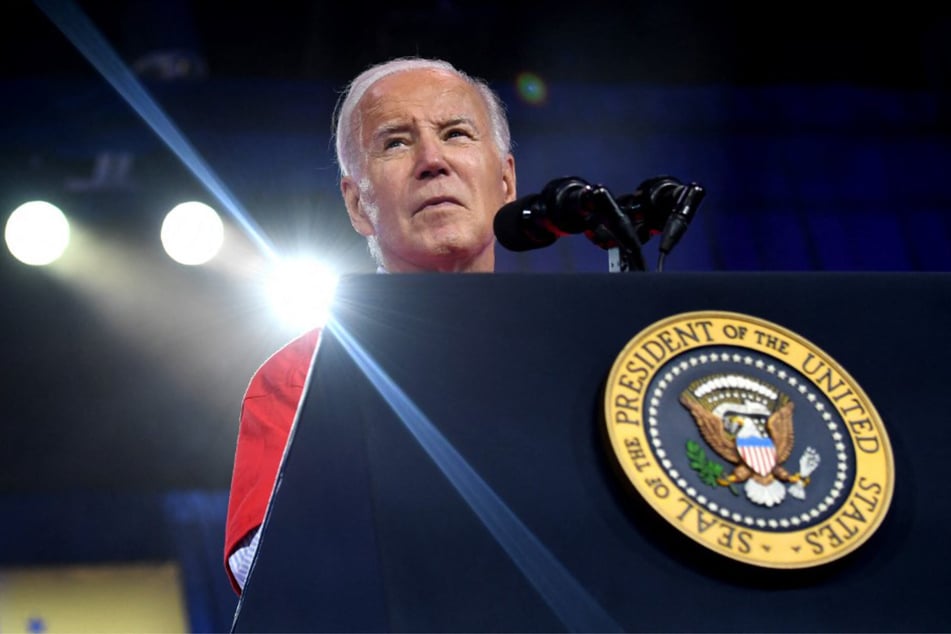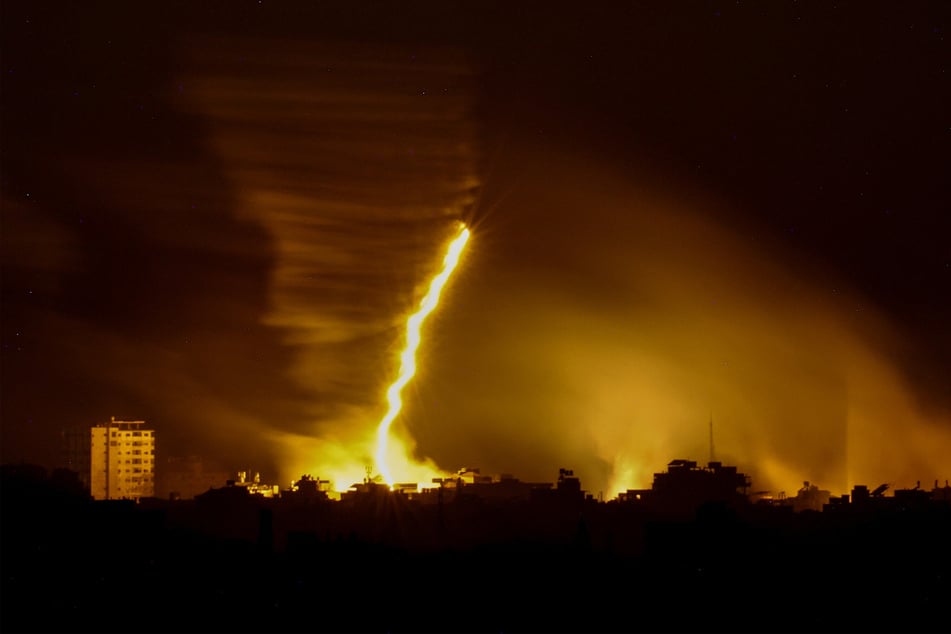Israel-Gaza war: Biden hails pauses in fighting as "step in the right direction"
Gaza City, Gaza – Israel has agreed to pauses in its offensive in northern Gaza that will allow some civilians to flee heavy fighting, but Prime Minister Benjamin Netanyahu ruled out any broader ceasefire as a "surrender" to Hamas.

President Joe Biden welcomed the pauses on Thursday afternoon, which formalize an arrangement that has already seen tens of thousands of Palestinians flee devastation in northern Gaza, but also said there was "no possibility" of a ceasefire.
The White House said there would be daily, four-hour pauses in northern Gaza, with warning given three hours beforehand. Biden has been pushing Netanyahu for longer breaks in the fighting after more than a month of war.
"For weeks, I've been speaking with Israel’s leaders about the importance of humanitarian pauses," Biden said on X, formerly Twitter.
"As of today, there will be two humanitarian passages that will allow people to flee hostile areas in Gaza. And they’ve already enabled thousands to reach safety."
Netanyahu said Israeli troops were performing "exceptionally well" in the offensive launched after Hamas fighters poured across the border on October 7, killing 1,400 people, mostly civilians and taking around 240 hostage.
Vowing to destroy Hamas, Israel has retaliated with an aerial bombing and ground offensive that the health ministry in the Hamas-run Gaza Strip says has killed more than 10,800 people, mostly civilians and many of them children.
Netanyahu said Israel had no intention of reoccupying the narrow strip of territory.
"We don't seek to govern Gaza. We don't seek to occupy it, but we seek to give it and us a better future," he told Fox News.
Tens of thousands of civilians have streamed out of devastated northern Gaza in recent days, with men, women and children clutching meager possessions as they emerge from the devastated war zone. They have fled as the warring sides engaged in intense close-quarter fighting, with Hamas militants using rocket-propelled grenades against Israeli troops backed by armored vehicles.
The UN agency responsible for Palestinian refugees, UNRWA, said some 70,000 people had travelled south on the route since November 4, most of them walking. Almost 1.6 million people have been internally displaced since October 7, it added, more than half the area's population.
But the UN estimates hundreds of thousands of civilians remain in the fiercest battle zones in the north.
And while Biden welcomed the pauses as a "step in the right direction", saying they would help civilians reach "safer areas", there was little sign of the broader halt to fighting that aid groups and the UN say is desperately needed.
"A ceasefire with Hamas means surrender to Hamas, surrender to terror," Netanyahu told Fox.
"There won't be a ceasefire without the release of Israeli hostages, that's not going to happen."
Biden works with Israel to obey "laws of war"

Biden said he was "still optimistic" about freeing hostages – including the around 10 US citizens held in Gaza. "We're not going to stop until we get them out."
He later confirmed that in a call with Netanyahu that "I've asked for a pause longer than three days." When asked if he was frustrated with Netanyahu, he said, "it’s taken a little longer than I hoped."
Biden has firmly stood by key ally Israel since the attacks, visiting Israel in October and saying that Hamas cannot be allowed to remain in control of Gaza.
But he has also called on Israel to obey the "laws of war," avoid civilian casualties, let in humanitarian aid and work on getting out the hostages.
Privately Washington has been putting pressure on Israel to rein in its offensive and to allow pauses in the fighting. This has met with Israeli resistance, particularly with Israel not wishing to give any appearance of weakness.
Inside Gaza, the intense combat and effective blockade of the densely populated territory have led to increasingly dire conditions. Aid groups have pleaded for a ceasefire, warning of a humanitarian "catastrophe" in Gaza, where food, water and medicine are in short supply.
Violence has also surged in the occupied West Bank since the conflict erupted, with at least 14 Palestinians killed on Thursday alone, according to the Ramallah-based health ministry.
The conflict has also stoked regional tensions, with cross-border exchanges between the Israeli army and Lebanon's Hezbollah, and Yemen's Iran-backed Huthi rebels saying they launched "ballistic missiles" at southern Israel.
A drone hit a school in southern Israel's Eilat on Thursday and Israeli air defenses later intercepted a missile over the Red Sea, the military said.
Cover photo: Collage: KENZO TRIBOUILLARD & OLIVIER DOULIERY / AFP

